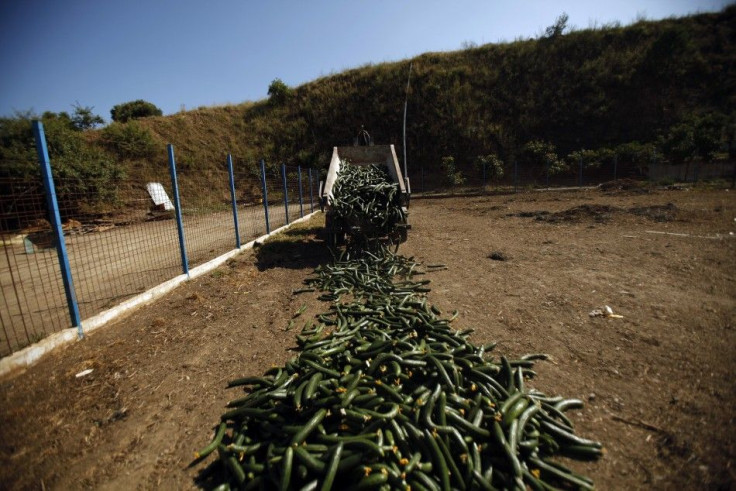E. Coli Outbreak in Europe Kills 16

German health officials say 16 people have been killed in European coutnries so far by an E.coli outbreak. Officials have yet to figure out the source of the outbreak.
More than 1,500 people living in European countries have gotten very sick due to the outbreak as well.
There were 65 new E.coli cases reported on Wednesday and 25 per cent of them involved HUS (hemolytic-uremic syndrome) according to The German disease control agency the Robert Koch Institute (RKI). Three cases were also reported in United States by those who have traveled to Germany lately.
Initially German authorities attributed the E.coli outbreak to cucumbers that were imported from Spain.
However, on Tuesday German authorities said the tests they have conducted on Spain's cucumbers didn't contain any dangerous bacteria. Nevertheless, diplomatic tensions are rising among Germany and Spain.
Spain is considering legal action against Germany since the crisis could cause huge damage to Spain's economy. Thailand lost billions of dollars in chicken exports when avian flu spread through the country in 2004.
We do not rule out taking action against authorities which have cast doubt on the quality of our produce, so action may be taken against the authorities, in this case, of Hamburg, Deputy Prime Minister Alfredo Perez Rubalcaba told radio station Cadena Ser.
Spanish farmers say they have lost a significant amount of sales due to the crisis. They have been losing 200 million euros ($285 million) a week, piling up 150,000 tons of Spanish fruit and vegetables. The move could put 70,000 people in danger of losing their jobs. Spain already has the top unemployment rate in the EU.
European Union Health Commissioner John Dalli said the Commission had yet to receive any official confirmation of any import prohibitions.
Meanwhile, there was the first suspected domestic case of E.coli infection in northern Spain - a 40-year-old man who had recently traveled to Germany.
E. coli is short for Escherichia coli -- bacteria (germs) that cause severe cramps and diarrhea which is a leading cause of bloody diarrhea. The symptoms are worse in children and older people, and especially in people who have another illness. E. coli infection is more common during the summer months and in northern states.
© Copyright IBTimes 2025. All rights reserved.




















